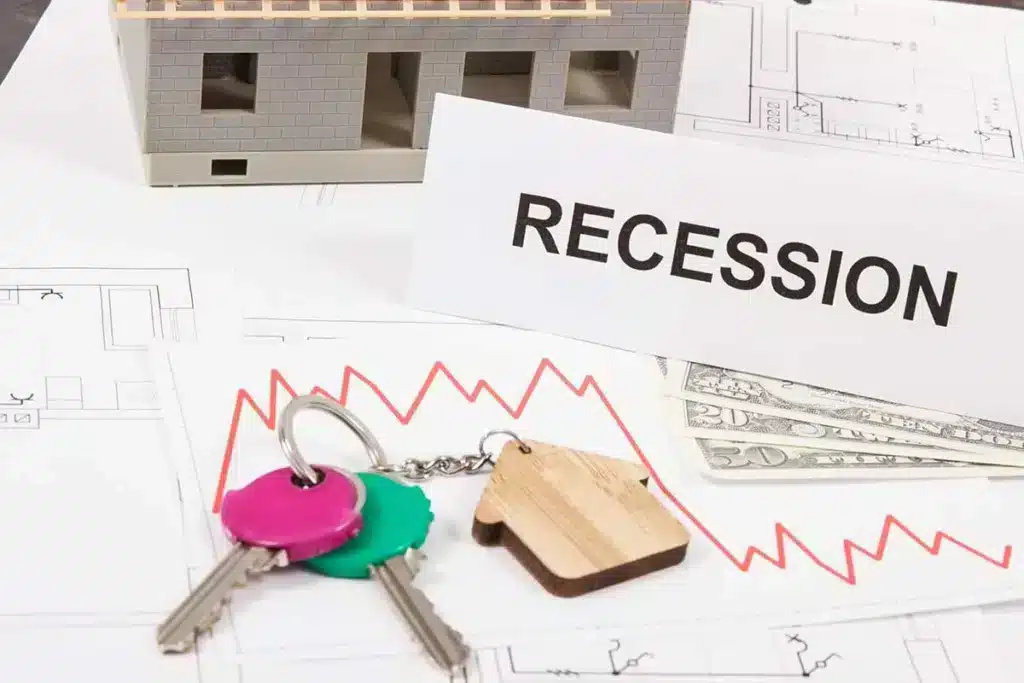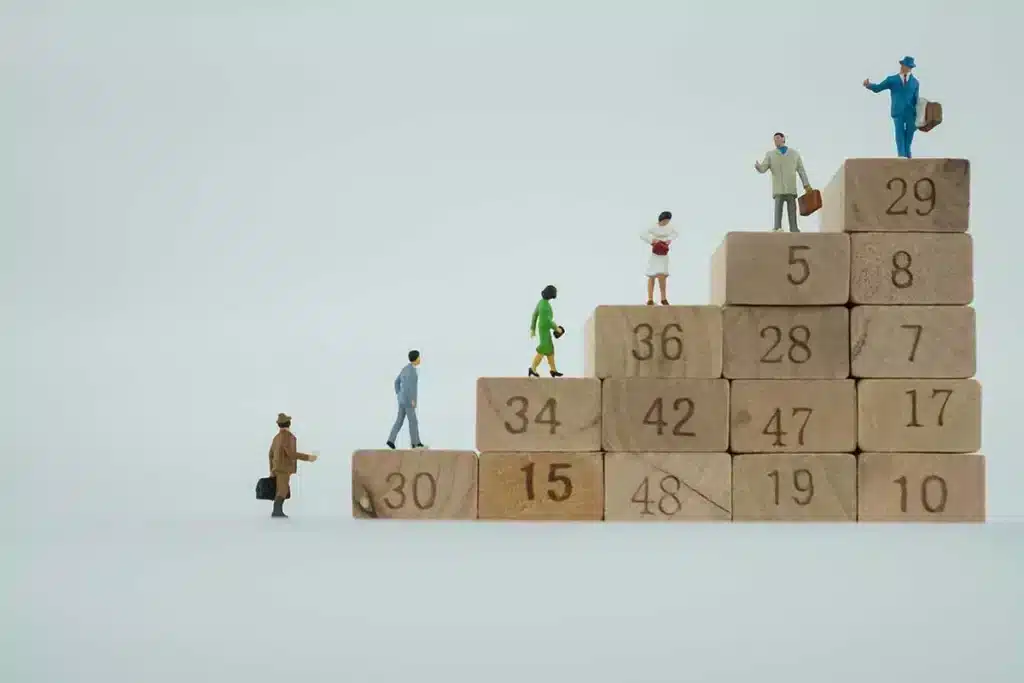It’s no secret that the housing market is on fire right now. Home prices are on the rise and many are realizing their American dream of homeownership. But when will this bubble burst and what can you do to prepare financially? In this blog post, we’ll look at some indicators that indicate when will the housing market crash in 2023 and offer tips for financial security in anticipation.
As homeowners, we’re well aware of the ups and downs in the housing market. Prices have been fluctuating wildly for years now, making it hard to know what can be expected in the future. So when will it crash? Let’s explore some factors that could contribute to when this phenomenon takes place in coming months or years.

Supply & Demand
When there is an abundance of homes available on the market, prices tend to go down as buyers have more choices. Conversely, when there is limited inventory available, prices rise as sellers capitalize on limited choices for purchasers.
Interest Rates
Interest rates also play a major role in determining market prices. When interest rates are low, buyers are able to purchase homes at more affordable payments than they would if interest rates were higher. This means that people who would not have been able to afford a home previously now become potential buyers because their payments are lower than they otherwise would be with higher interest rates. This increased demand helps push up market prices and can even lead to bidding wars among buyers looking for a particular home or area of town.
Economic Factors
The economy has a profound effect on housing markets across the nation. When economic conditions improve, consumer confidence and spending power increase, leading to an uptick in demand for homes – driving up prices accordingly. Conversely, when conditions deteriorate, consumer confidence drops off significantly as people delay home purchasing until conditions improve again. As a result, home prices decline as sellers compete for fewer buyers in their local markets.
No one can accurately forecast when the housing market will crash; however, by understanding some key elements that drive market prices you can gain a better insight into where things may go in the near future. By staying abreast of current economic developments and monitoring how supply and demand interact, you can make educated decisions regarding whether now is an ideal time or not to buy or sell your home within your local real estate market!
1. The Current State of the Housing Market
Recently, the housing market has experienced unprecedented growth with prices increasing and inventory remaining low. This has raised fears of a bubble forming, as people purchase homes without fully comprehending the risks involved.
2. The Potential for a Housing Market Crash
While it’s impossible to predict when the housing market will collapse, there is a strong possibility it could. If interest rates rise or economic conditions deteriorate, many may no longer be able to afford their mortgage payments. This could cause home prices to plummet rapidly, leading many people to experience financial hardship.

3. The Warning Signs of a Housing Market Crash
There are several warning signs that the housing market could collapse. These include rapidly rising home prices, high levels of debt and inadequate savings. If you spot these warning signs, be cautious when buying or selling a property.
4. What to Do if You Think a Housing Market Crash is Coming
When anticipating when the housing market may crash, there are several steps you can take to protect yourself. Make sure you have enough cash saved up so you can afford your mortgage payments if prices begin to decrease. Secondly, look into purchasing a less expensive home so that your exposure to price decreases is minimized. Finally, do not take on too much debt when buying your house; doing so could put you at risk of foreclosure should prices decline unexpectedly.
5. What to Do if the Housing Market Crashes
If you’re worried the housing market will crash and your home is overpriced, there are several steps you can take to minimize your losses. First, stay put and wait out any decline in value; secondly, sell quickly so as not to have to pay too much in real estate commissions; thirdly, consider renting out your property so as to offset some of your mortgage payments.
When Will the Housing Market Crash Again?
When will the housing market crash? 2008’s crisis had a devastating effect on the US economy, leaving millions of homeowners underwater on their mortgages and investors and lenders alike with huge losses. Although recent years have seen considerable improvements in the housing market, many remain concerned when it will collapse again. To find out when exactly that will occur, let’s take a closer look at this question and determine when exactly it could occur.

The Causes of a Housing Market Crash
It’s essential to comprehend what causes a housing market crash in order to predict when one may occur again. In general, prices become excessively inflated due to increased demand combined with limited supply, creating an unsustainable bubble which eventually bursts, leading to sharp decreases in value as buyers no longer possess the funds for them.
In many cases, price drops are caused by economic downturns or recessions that lead to decreased demand and further price drops. Furthermore, different regions can experience different degrees of volatility during these crashes; some areas may see larger declines than others due to local factors like job losses or higher foreclosure rates.
Will The Housing Market Crash?
Though it is impossible to accurately forecast when the housing market will crash, there are certain warning signs that could indicate an imminent crisis. One of the most prominent warning signs is an increase in home prices that exceed incomes; when home values become too expensive for current wages, it creates an imbalance between supply and demand which could eventually lead to questions regarding when will the housing market crash. Other signs include rising mortgage interest rates and decreased affordability due to stricter lending standards from banks and other lenders. If there is an economic recession or downturn imminently, prices could decline even further due to decreased demand from potential buyers who may no longer be able to purchase homes at current levels.
Though it’s impossible to predict when the housing market will crash in the near future, homeowners should pay close attention to key indicators like home prices compared to wages and mortgage interest rates so they can make informed decisions about buying or selling their houses at any given time. Doing this reduces their exposure to potential risks while still taking advantage of beneficial opportunities when they arise. In the end, only time will tell when this cycle ends – but staying informed allows homeowners to stay one step ahead no matter what occurs!
1. The current state of the housing market
The housing market is currently in a transition period. Home prices have been on the rise for several years, but there are signs that things may be cooling off. Inventory levels are rising and interest rates are starting to creep up – all factors which could lead to decreased home values within months or years.
2. The last housing market crash
In 2008, the housing market crashed as predicted due to subprime mortgages, overleveraging and speculation. This caused a dramatic decrease in home values as well as an uptick in foreclosures.
3. The current state of the economy
The current state of the economy is positive. Unemployment is low and wages are on the rise. However, there are concerns that growth may be slowing due to trade tensions or other external influences. If conditions worsen, it could result in decreased housing demand and lower home prices.

4. Demographic trends
Demographic trends influence the housing market. For instance, millennials are now reaching an age where they are ready to purchase homes; however, many are struggling with student loan debt and may not have as much access to credit as previous generations did. This could result in slower growth for this segment of the housing market.
5. Interest rates
Interest rates play a critical role in the housing market. When interest rates are low, it makes purchasing homes more accessible for buyers; however, if they rise too high, it could price some buyers out of the market and cause an overall decrease in housing demand.
6. Inflation
Inflation can have a significant effect on the housing market. If inflation rises too rapidly, it could decrease purchasing power and make homes less affordable for buyers. Furthermore, if inflation is expected to increase in the future, investors may choose to purchase property now rather than wait for prices to escalate further down the line.
7. Geopolitical instability
Geopolitical instability can also have an effect on the housing market. For instance, if there is unrest in a particular country or region, foreign investors may choose to withdraw their money from that region’s real estate market.
How Soon Will the Housing Market Crash?
In 2008, the housing market crash left millions of people homeless, underwater on their mortgages and without life savings. Many are wondering if history will repeat itself and when will another housing bubble burst. Let us examine when will another bubble form and how our current market differs from 2008’s scenario.
What Caused The Last Crash?
When will the housing market crash? In 2008, multiple factors combined to form a perfect storm: mortgage lenders were issuing risky loans to people who had no business owning a home, speculation was high and no federal regulation existed for the industry. When prices stopped increasing and people started defaulting on their mortgages, it created an exponential effect that thrust all of society into crisis mode.
How Is The Current Market Different?
The good news is that our current market appears much more stable than it did prior to the last crash. Mortgage lenders have tightened their lending criteria so only those with good credit scores can get approved for a loan, and due to an overall lack of construction over the past decade, there are fewer homes available for purchase – leading to less speculation and fewer foreclosures. Furthermore, federal regulators have taken action to prevent banks from making too many risky loans or engaging in other activities which could potentially answer “when will the housing market crash?”.
- The U.S. housing market is due for a correction.
- Home prices have been rising at an unsustainable rate.
- Mortgage rates are expected to increase in the foreseeable future.
- There is a severe shortage of affordable housing.
- Economic conditions have caused a slowdown in the housing market.
- The stock market is due for a correction.
- Right now, there is a lot of uncertainty in the world.
- Interest rates remain at record low levels.
- There are signs that the housing market may be cooling off.
Real estate market conditions can be unpredictable and hard to forecast. Florida has experienced remarkable growth over recent years, yet with today’s uncertain economy many are wondering when will Florida’s housing market crash. To make an informed decision about whether to purchase or sell a home here in Florida it’s essential that you understand its current conditions and conditions. Let’s take a closer look at when will Florida’s housing market crash.

Economic Factors
When will Florida’s housing market crash? An economic downturn is the most obvious answer to when prices will fall in Florida. When people have less money, they won’t spend it on buying or renting homes, leading to an oversupply on the market and driving prices down significantly. Furthermore, businesses may experience difficulty due to lack of demand, meaning they may not be able to provide jobs for those who want them – further decreasing their purchasing power.
Population Shifts
Another factor that could impact Florida’s housing market is population shifts. If large numbers of people move away from certain areas or out of state entirely, it could create an oversupply of homes and drive prices down significantly. Recently, parts of Miami and Fort Lauderdale experienced significant decreases in population due to job losses caused by COVID-19. If this trend continues, expect sellers to offer their properties for any price, leading to lower overall home values across Florida.
Mortgage Interest Rates
Finally, mortgage interest rates play a significant role in determining how much people are willing and able to pay for homes in any given area. If rates rise significantly, fewer people will be able to afford mortgages which will lead directly to reduced demand and decreased prices across the board. While current mortgage rates are at all-time lows, this trend cannot be guaranteed forever so it’s essential for both potential buyers and sellers alike to keep an eye on this variable when determining whether now is an advantageous time to buy or sell property in Florida.
Are you in search of a unique gift idea? Check out these suggestions from real customers! No one can predict when or if Florida’s housing market will collapse. But by paying attention to key economic indicators like mortgage interest rates, population shifts, and unemployment levels we can get an indication of possible trends and make informed decisions when purchasing or selling property in our beautiful state. Though it’s impossible to predict when or if another crash will come, one thing is certain: real estate markets typically cycle in cycles. Without something drastic changing, we should expect another crash sooner rather than later! With knowledge comes power; understanding these key indicators can help homeowners protect themselves financially in case disaster strikes again!



